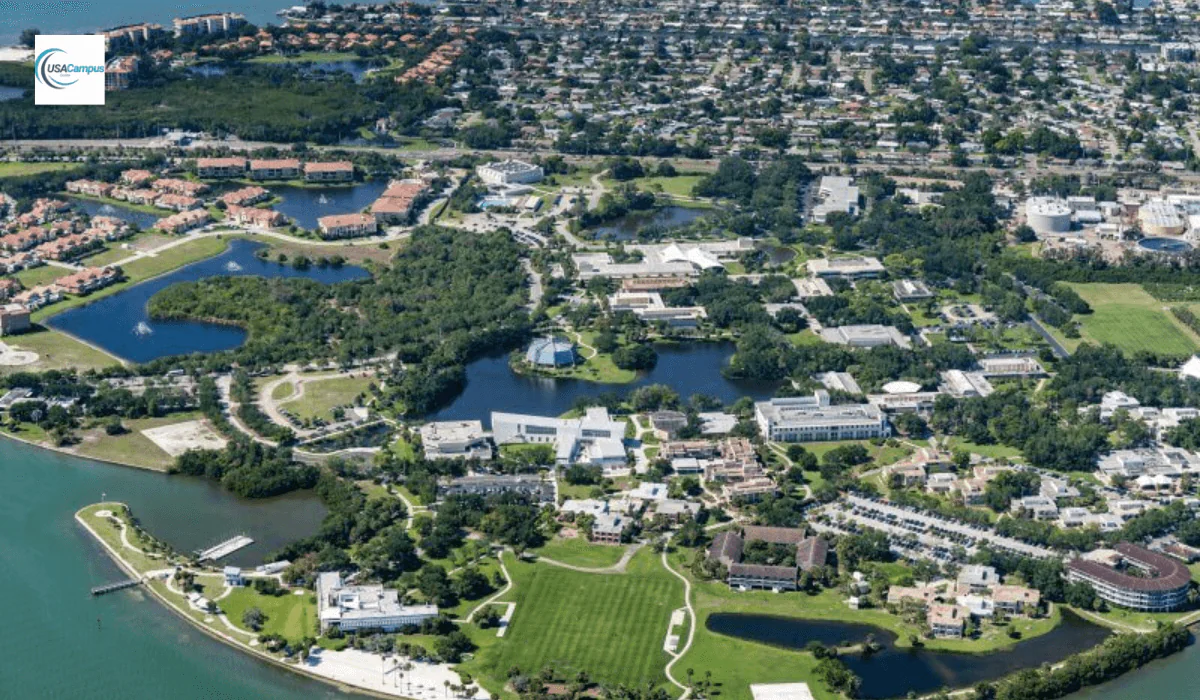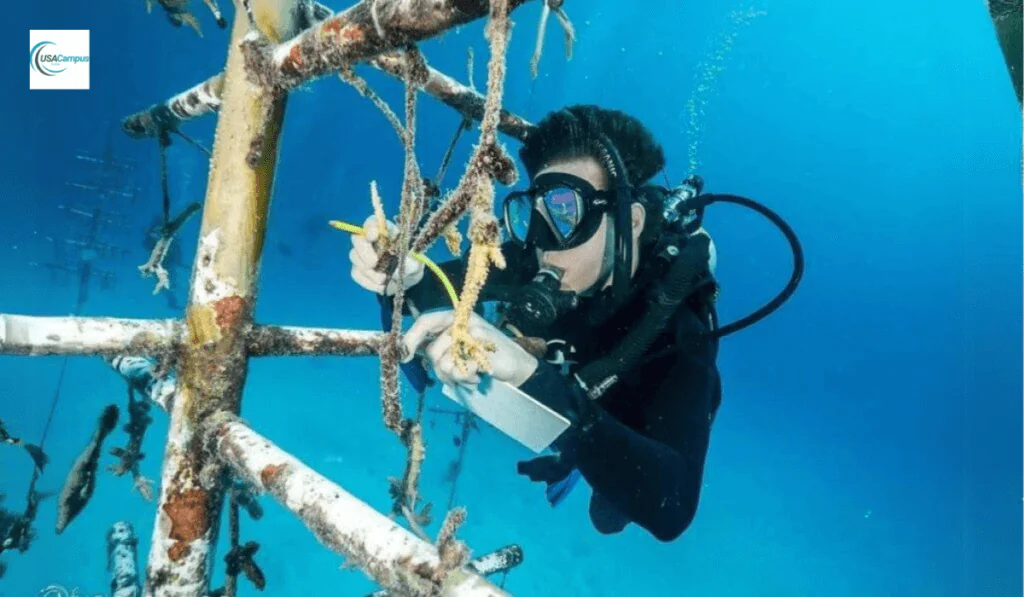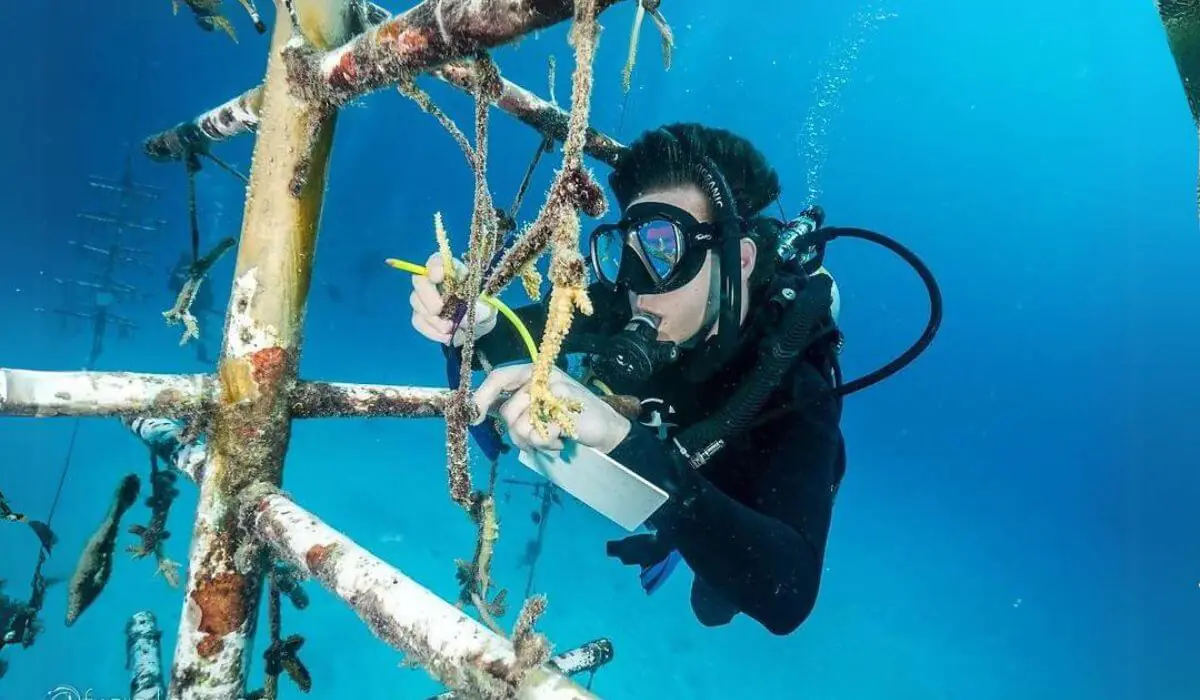Do you zest to see the beautiful underwater beauty of nature.? Do you believe in marine biology and ecology, i.e. from coral reefs to costal ecosystem. then this course can bring more affection towards sea nature.

Eckerd College’s innovative marine biology course explores coastal ecosystems! We explore bright coral reefs and different coastal habitats, revealing interesting insights into the complex world beneath the seas.
Eckerd College’s Marine Biology and Ecology Course
Eckerd College has a long history of marine scientific expertise. Marine biology and ecology have been the college’s focus since 1958. For decades, Eckerd College has invested in cutting-edge facilities, faculty, and research to become a marine science education leader.
One of the college’s main programs, Marine Science, uses its waterfront location near the Gulf of Mexico to give students unmatched access to different marine environments.
Course Structure
For a well-rounded education in marine habitats, biological processes, and ecological concepts, Eckerd College offers a course in marine biology and ecology. Those who complete the program will have the theoretical grounding and hands-on experience necessary to pursue successful careers in marine research.
Designed to offer a well-rounded, multidisciplinary education in marine sciences, Eckerd College’s Marine Science department focuses on four main areas of concentration:

- Introduction to Marine Science: Oceanography, marine biology, and ecology are the cornerstones of this introductory course. Chemistry Marine and physical characteristics, marine life, and ecosystem interactions are the topics covered in this course..
- Marine Ecology: The fundamentals of marine ecology are the subject of this course. Human influences on marine ecosystems, trophic relationships, population dynamics, and community structure are some of the topics covered.
- Marine Invertebrate Zoology: The ecology, physiology, variety, and anatomy of marine invertebrates are studied by students. In this course, students will learn about invertebrates through hands-on lab work and excursions to see them in their natural regions.
- Ichthyology: Evolution, taxonomy, physiology, and ecology are all aspects of fish biology that will be covered in this course. Through activities like field sampling, identification, and dissection, students have practical experience.
- Marine Conservation Biology: Marine resource management and conservation is the focus of this class. Overfishing, habitat loss, and climate change are just a few of the pressing issues that students investigate in this course, along with potential solutions and methods for sustainable management of marine resources.
Each specialization has a structured curriculum that includes core courses, specialized courses, and elective options. The program emphasizes hands-on learning, fieldwork, and research, ensuring that students gain practical experience alongside theoretical knowledge.
Core Courses
All Marine Science majors must complete a set of core courses, which include:
- Biological Oceanography
- Geological Oceanography
- Chemical and Physical Oceanography
- Marine Science Seminar
- Fundamental Physics I
- General Chemistry I and II
- Calculus I and II
- Marine Science Comprehensive Exam or Senior Thesis
Elective Courses
- Marine Mammalogy: This elective focuses on the biology, behavior, and conservation of marine mammals, including whales, dolphins, and seals. Students engage in field research and data analysis.
- Coral Reef Ecology: Students study the ecology and conservation of coral reef ecosystems. The course includes field trips to coral reefs and hands-on research projects.
- Marine Microbiology: This course explores the role of microorganisms in marine ecosystems. Topics include microbial diversity, biogeochemical cycles, and the impact of microbes on marine health and productivity.
- Marine Biology :
- Marine Chemistry :
- Marine Geology :
- Marine Geophysics :
Hands-On Research Projects and Internship Opportunities
A distinctive feature of Eckerd College’s Marine Biology and Ecology course is the emphasis on research and fieldwork. Students have access to the college’s waterfront campus, research vessels, and marine laboratory facilities. They participate in research projects, internships, and field trips to local and international marine environments.

Some of the notable programs and experiences include:
- NSF-funded “Scientist at Sea” program: Provides research cruise experience and peer mentorship.
- Eckerd College Dolphin Project: Involves population surveys of bottlenose dolphins in Boca Ciega Bay.
- Research Assistantships: Opportunities to work on projects in locations such as the Bahamas, US Virgin Islands, Costa Rica, and Panama.
- Galbraith Scholarship: Supports summer research at the Bermuda Institute for Ocean Sciences.
- Coastal Cleanup Projects: Involvement in environmental conservation efforts in the Gulf of Mexico.
Which College is the Best for Aeronautical Engineering? | Top 10 list
Best Aerospace Engineering College
Student Selection Criteria
Admission to Eckerd College’s Marine Science program is competitive and based on a holistic review of each applicant’s academic performance, standardized test scores, extracurricular activities, and personal essays. The college seeks students who demonstrate a strong interest in marine sciences and a commitment to environmental stewardship.
Academic Requirements
- High School Diploma: Applicants must have a high school diploma or equivalent.
- GPA: A strong GPA, typically 3.0 or higher, is preferred.
- Standardized Tests: While Eckerd College has adopted a test-optional policy, applicants are encouraged to submit SAT or ACT scores if they believe it will strengthen their application.
Personal Statement
Applicants must submit a personal statement outlining their interest in marine biology and ecology, career aspirations, and any relevant experiences, such as internships, volunteer work, or research projects.
Letters of Recommendation
Two to three letters of recommendation from teachers, mentors, or employers are required. These letters should attest to the applicant’s academic abilities, work ethic, and passion for marine science.
Interview
In some cases, applicants may be invited for an interview with the admissions committee or faculty members from the Marine Science Department. This interview helps assess the applicant’s suitability for the program.
Course Fees
The tuition and fees for Eckerd College are structured to cover a comprehensive academic year. As of July 1, 2024, the costs are as follows:
- Tuition: $50,046 per year
- Activity and Technology Fees: $726
- Books and Supplies: $1,350
- Direct Loan Fees: $80
- Housing and Food: $4,481
- Miscellaneous: $1,280
- Transportation: $1,226
These fees cover a maximum of ten course registrations during the academic year, including one short-term project and four courses each 14-week term.
Placements After Completion of Course
Graduates of Eckerd College’s Marine Science program have a wide range of career opportunities available to them. Many students pursue advanced degrees in marine science, oceanography, and related fields. Others find employment in various sectors, including:
- Aquarium Technician
- Environmental Consultant
- Field Crew Member
- Lab Research Assistant
- Marine Mammal Trainer
- Park Ranger
Salary Range
The salary range for graduates of the Marine Science program varies depending on the specific career path chosen. Entry-level positions in marine science fields typically offer salaries ranging from $35,000 to $50,000 per year.
With advanced degrees and experience, salaries can increase significantly, with positions such as research scientists, environmental consultants, and university professors earning between $60,000 and $100,000 or more annually.
Conclusion
The Marine Biology and Ecology course at Eckerd College provides an in-depth, practical education in the marine sciences. The program equips students for thriving careers in a range of marine scientific domains through a heavy focus on hands-on experience, interdisciplinary study, and research opportunities.
The college’s outstanding location and state-of-the-art facilities make it an ideal choice for students passionate about marine biology and ecology, further enhances your learning experience.
I am Micheal V, a freelance blog writer. I have expertise in writing blog with interest in Travel, Education, Stock Market. I can help my customers to get Ad sense Approval, You can connect with me for any blog writing service on “usacampusguide@gmail.com“, by mentioning Subject as “Blog Writing Service”
